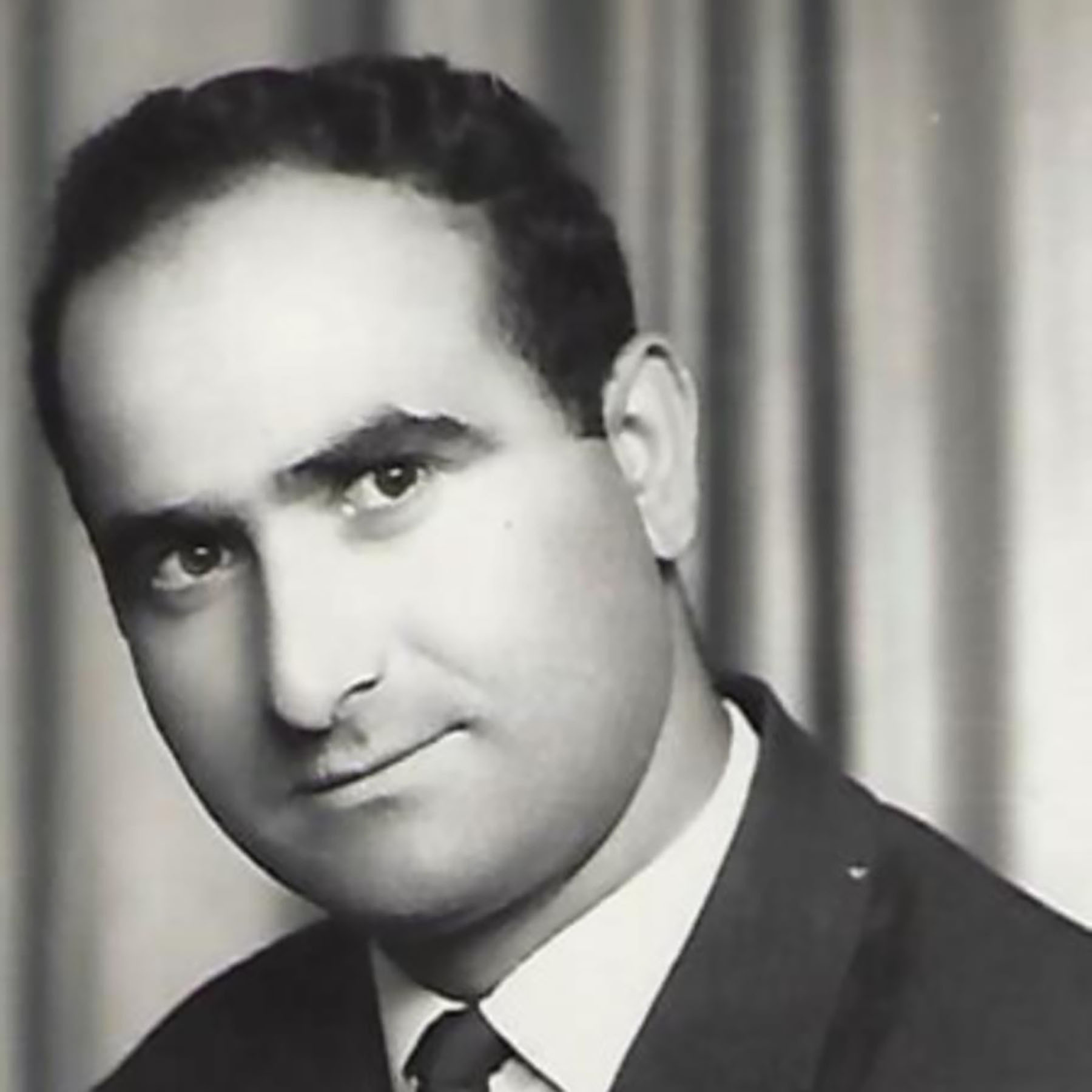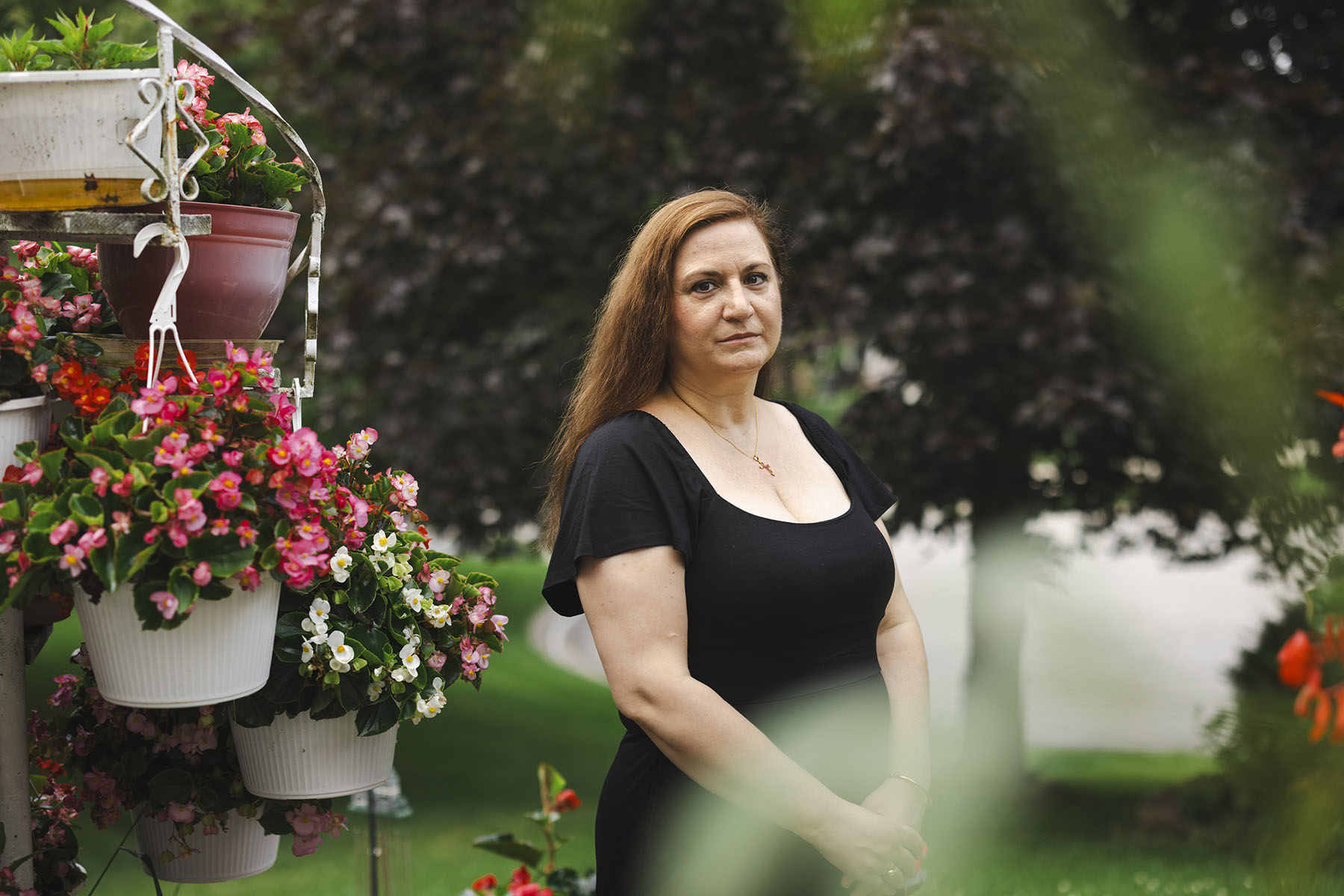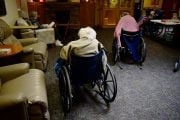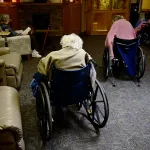Your trusted source for contextualizing the news. Sign up for our daily newsletter.
Nearly everyone — national progressive and civil rights groups, as well as disability rights organizations — told Susie Talevski that not only was she going to lose her case before the Supreme Court, she was going to wreck civil rights enforcement for people with disabilities and older adults in the process.
“They came in like a Greek chorus of naysayers and doomsayers — that’s what I call them. All saying the same thing: ‘You’re going to lose,’” Talevski said.
But she was undeterred and ultimately prevailed in Health and Hospital Corporation of Marion County v. Talevski. Last month, the Supreme Court ruled 7-2 to preserve the central issue in the case — the right of people with disabilities, older adults and their families to sue when government programs like Medicaid aren’t fairly or safely administered.
That means the Talevski family also won the right to sue Health and Hospital Corporation of Marion County for the alleged abuse of the late Gorgi Talevski in a nursing home the organization owns and operates. That litigation is still pending.
It is an outcome that, in the year leading up to the ruling, not a single expert who spoke with The 19th expected. In fact, experts were all but certain that Talevski’s family would lose the case — and take with it much of our country’s civil rights enforcement for people with disabilities and older adults.
-
Previous coverage:
-
Previous coverage: Disability and aging advocates celebrate Supreme Court’s Talevski decision
Susie Talevski is the late Gorgi Talevski’s daughter and took a central role representing her family. Despite the pressure to drop or withdraw the case, Talevski kept going. She was certain that the court would make a just ruling. She said she felt anxiety, but she never doubted that continuing with the case was the right course of action.
This was not the first time Talevski pushed through “naysayers and doomsayers” to do what she thought was right. Friends and colleagues described Talevski to The 19th as a person with an incredibly strong sense of justice, an unwavering certainty that what is right will ultimately prevail.
“I was on a mission. You could call it a mission from God or a mission from the universe. I was not going to back down to a bunch of crooks from Marion County,” Talevski said.
Susie Talevski was born in Gary, Indiana. She requested that the 19th omit her age.
“I like to joke that only my doctor and my mother know my real age,” Talevski said.
Talevski lived in Gary for the first five years of her life, before her family moved to Merrillville, Indiana, and then later, Valparaiso, Indiana, where she still lives.
Her parents are Macedonian immigrants, and she grew up in a bilingual household. Her father was a steelworker, carpenter and agronomist. Her mother, Ivanka Talevski, had attended university in Macedonia, but her degree didn’t carry the same weight in the United States. She worked in the restaurant industry for a while, but for most of her life in America, she was a homemaker.
“I always lived in two worlds. Inside the house, it was Macedonian culture, language, custom. And on the outside, it was American culture and English language,” Talevski said.
She remembers her father, first and foremost, as a hard worker.

“He’d go out to work in the dead of winter to make it to his midnight shift. He was so dedicated to building a better life for us,” Talevski said.
Even as a child, Talevski had a strong sense of justice. Chrissy Creech has known Susie Talevski since elementary school.
“Her family was Macedonian, so in order for me to be allowed over, her parents had to meet my whole family,” Creech said.
An incident from when they were in sixth grade stands out to Creech. She and her friends weren’t allowed out to the playground for recess in winter. They were only allowed to play on the blacktop. School staff were worried that students would track too much mud in and that it would be expensive to clean.
“All we could do was throw balls. We couldn’t go on the swingsets or anything,” Creech said.
Talevski led a group of girls to the principal, to ask to be allowed to play on the playground equipment in winter. “Susie was definitely the ringleader,” Creech said.
The principal refused, “so we decided to go over his head,” Creech said. Talevski waited until the principal was out of town, then organized a group of “15 or 20 girls” to march down to the superintendent’s office. The superintendent told the girls he would take their demands into consideration. But when the principal returned, he punished Talevski, Creech and two other girls.
“We had to write ‘I have a big mouth’ a thousand times,” Creech said.
Eventually, the news got back to Talevski’s and Creech’s parents. Surprisingly, Talevski’s parents backed her up.
“They were Macedonian and were never going to understand that the teacher was always right. So her parents complained that we didn’t get to go out for recess. The whole school ended up being able to go out and have recess outside on the playground, again because of Susie Talevski. That’s who Susie Talevski is. She has passion and she doesn’t stop. It’s the way she’s wired. And fortunately for her, it’s for good,” Creech said.
After graduating high school early, Talevski attended university in Indianapolis, ultimately gaining her law degree at the Indiana University Robert H. McKinney School of Law in 2000. She currently practices contract law.
-
Previous Coverage:
In 2016, Talevski was a delegate for Senator Bernie Sanders’ campaign for the Democratic presidential nomination. She was, by all accounts, deeply passionate about Sanders and his candidacy.
“Even when she knew Bernie wasn’t going to win, she stood behind him. It didn’t really matter what the naysayers might do,” Creech said.
Robert Deppert was a Sanders delegate in both 2016 and 2020. He currently lives in Bloomington, Indiana, and is a lifelong member of the local Democratic Party. He also sells health insurance – admittedly an odd profession for someone who stumped for Sanders’ Medicare for All platform. He believes access to health care should be simpler and fairer than it currently is.
“I want to put myself out of business,” Deppert told The 19th.
He first met Talevski at the 2016 Democratic convention in Philadelphia.
“There were delegates that were passive and just didn’t want to do a lot. And there were some where every chance they got, they organized a protest or held a banner. I was like that and so was [Talevski],” Deppert said.
Deppert describes Sanders’ loss as “tough.” He said that Talevski was disappointed that Sanders told delegates, on the first day of the convention, that he wasn’t going to contest Clinton’s victory.
“She was one of the ones who came out of that meeting not happy about it,” Deppert said.
Unlike Deppert, Talevski ended up walking out, along with a handful of Sanders delegates.
“I think [marching out] was emblematic of Susie and her sense of justice and her sense of right and wrong. She marches to her own drum. Not everybody marched out. I didn’t,” he said.

In 2016, while Talevski was stumping for Sanders, her father’s dementia worsened. The family placed him in a nursing home near where they lived.
“We tried to take care of him for several years, but it got to the point where he needed 24/7 care. We thought, for his safety, that a nursing home would be a better place for him. We picked a place that was close to Valparaiso, where we could go see him at any time, bring him home sometimes. It seemed like a good idea at the time,” Talevski said.
She later regretted the decision, describing it as “a colossal mistake.”
Health and Hospital Corporation of Marion County operates the nursing home Gorgi Talevski lived in, and where Talevski and her family allege he was abused. The lawsuit is still pending, so Talevski declined to get into specifics beyond what was already disclosed in the Supreme Court case regarding allegations of what is called “chemical restraint.” Talevski’s family alleges that the nursing home he resided in prescribed psychiatric medication he did not need to make him more manageable for staff, to the detriment of his health. Talevski alleges this worsened his decline.
“He lost his ability to speak English. He couldn’t feed himself. He was sleeping all the time — just catatonic. They said it was the progression of the disease, but we didn’t realize it would progress this fast,” Talevski said. She realized, one evening while visiting, that she didn’t know what medications her father was taking — only that staff seemed to be administering a lot of them.
Talevski and her family decided to taper her father off some of his psychiatric medications. At the same time, the nursing home began sending Talevski’s father to a neuropsychiatric hospital far from the nursing home. Eventually, the nursing home refused to readmit Talevski from the hospital. Talevski alleges that this was an unlawful discharge.
“They called us up and said they were not taking him back,” Talevski said. She and her family received a form letter stating that they had the right to appeal under the Federal Nursing Home Reform Act. So they did.
After a hearing with an administrative judge, it was determined that the discharge from the nursing home was illegal, but the nursing home refused to readmit Gorgi Talevski. That was the beginning of the legal fight that would eventually lead to the Supreme Court.
Talevski never expected the case to go to the Supreme Court. Neither did any of the experts The 19th spoke with. Its selection was highly unusual, according to Andrew Twinamatsiko, associate director at the O’Neill Institute for National and Global Health Law at Georgetown University Law Center.
“Usually, when the Supreme Court takes a case, it’s because a lower court’s decision is egregiously wrong, or there is a disagreement between the circuit courts,” Twinamatsiko said.
But with Health and Hospital Corporation of Marion County v. Talevski, this was not the case. The circuit courts were not in disagreement. The lower courts all determined that Talevski could sue. So, by accepting the case, the high court signaled that perhaps the lower court’s decision was egregiously wrong.
Experts were concerned that the court’s conservative majority may have wanted to use the case to cut back on social welfare programs. The court, at this point, had already signaled it might not respect long-standing precedent, as when it overturned Roe v. Wade.
“There has been a decades-long crusade by conservative forces to cut [welfare and entitlement programs like Medicaid] back,” Twinamatsiko said. And based on the questions the court announced it would examine, it seemed like this case would be a vehicle to do it.
Talevski was acutely aware of this, even before advocacy groups began approaching her to ask her to withdraw or settle.
“The shocking thing about our case going to the Supreme Court was question one. It was a monumental question. The petitioners were trying to reduce about 55 years of long-standing civil rights precedent in the country, where the court had recognized that recipients of social safety net programs are entitled to sue states,” Talevski said.
Representatives from some national advocacy groups called Talevski “deluded” and “selfish,” in addition to some more colorful language in numerous off-the-record interviews with The 19th. In meetings, they told Talevski as much – though many ended up filing amicus briefs with the court backing her case.
“They were coming in with their national legal directors, all of these advocacy groups. I feel I was sort of being beat up on psychologically. I had to be very, very strong to withstand it,” Talevski said. She opted not to name the groups who met with her, and the groups that spoke with The 19th about meeting with Talevski did so off the record.
One group stands out because it did not attempt to persuade her to change course at the time. And they agreed to speak on the record about meeting with Talevski.
Talevski called AARP’s Maame Gyamfi “a true ally.”
“I talked with her one day about all of the pressure I was getting, and she gave me a little motivational talk,” Talevski said.
Gyamfi, a senior attorney at the AARP Foundation, remembered being encouraging.
“I think it’s important to understand that [Talevski] did not ask to be in front of the Supreme Court. But at the point we spoke, that’s what had happened. The stakes were so high. I told her it was not the time to despair, but to really focus on the issue, which is that nursing home facility residents must have the ability to enforce their civil rights. I told her it was time to hunker down and fight,” Gyamfi said.
This was not an opinion that was widely held by other advocacy organizations. There was no coordination that Gyamfi was aware of — most other groups simply arrived at different conclusions.
“Consensus seemed to be that my appellate attorneys were misleading me or giving me false hope. Which I pretty much nixed, because it’s not true,” Talevski said.
Attorney Andrew Tutt, who argued Talevski’s case before the Supreme Court, declined to speak with The 19th for this article. But Talevski said that part of what motivated her to keep going was her faith in him.
“I had immense confidence in the law firm, Arnold & Porter, the appellate attorney Andrew [Tutt] and the team he assembled. He is brilliant. He works hard. He is persistent,” she said.
She believes it was a miracle that Tutt reached out to her and offered to represent her in the case.
“When I got the email from [Tutt] I thought someone was pulling my leg. I thought it was like one of those Nigerian prince emails. Why would an attorney from one of the most prestigious law firms in the country be interested in me, in Podunk, Indiana? I didn’t respond to it immediately because I thought it was a scam,” Talevski said.
Talevski also had faith in the Supreme Court to deliver a just ruling.
“This may seem strange to you. It certainly seemed strange to the groups I met with. But I had trust in the Supreme Court, even after Dobbs [which overturned Roe v. Wade]. I didn’t fall into a panic. There’s a lot of media attention on this court and a lot of scrutiny and criticism from the left. I tried to be more calm and independent thinking,” Talevski said.
But most of all, Talevski believed she was in the right.

“I have a deep faith in God. This was a battle — a righteous battle. Not only for my father, but for other nursing home patients,” Talevski said.
Against almost all expert advice, Talevski won. She was in Indianapolis visiting a friend when she heard the news.
“I hadn’t been able to sleep for weeks. I kept thinking it could be tomorrow [when they release the decision]. I probably slept two hours that night,” Talevski said.
The same experts who pressured Talevski to withdraw or settle celebrated her victory when it happened. This was somewhat frustrating for Talevski.
“When we won the case, [one advocacy group] tweeted ‘Who says you can’t win in this court?’ And I wanted to tell [them], ‘Literally you, buddy,” Talevski said.
The news still hadn’t fully set in when The 19th interviewed Talevski for this piece.
“I’m still trying to absorb that we won. I was under so much stress for so long,” Talevski said.
The Supreme Court ruled only that Talevski and her family have a right to bring their suit against Health and Hospital Corporation of Marion County. That legal journey is only beginning.
“This was a quintessential David and Goliath fight. It’s not easy to be David. Especially when everybody says Goliath is going to win,” Talevski said.








